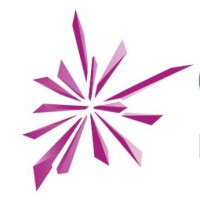-
Australia
Copyright © 2025 Powered by BCI Media Group Pty Ltd
Confirm Submission
Are you sure want to adding all Products to your Library?
Contact Detail

Almost exactly one year after celebrating the completion of a solar installation at its Altona plant in Victoria, Etex Australia completed another installation of a similar scope and size at their Matraville plant in NSW.

The Matraville installation includes 1924 solar panels on the roof space, expected to generate at least 15% of the site’s electricity requirement. Switching to solar allows the factory to reduce its carbon footprint with a CO2-e emission reduction of approximately 727 t, or 1.2% of the national operations emissions (gate to gate).
The completion of the Matraville solar installation called for another “Flick the Switch” celebration to officially make the transition to solar. The event coincided with a visit from Jochen Friedrichs, Head of Division Building Performance, who was honoured with the task of pressing the button to turn the system on.
Jochen was accompanied by Yves Slachmuylders, Head of Gypsum Platform, Transformation and Performance Management; Stephane Mettavant, Head of Building Performance and Gypsum Manufacturing; John Sinfield, Country Manager - UK & Ireland; Susana Nahum, Gypsum Innovation Manager Thruwall and Matteo Da Forno, ROE Region Lead.
The delegation was on visit to Australia and enjoyed a tour of the plant in the morning before joining all the Matraville teammates for the event and a light lunch.
In his speech Jochen said that the Matraville solar array was the 12th solar installation at Etex factories worldwide. He referred to the ambitious targets the company has set for decarbonization, which is an important pillar of the Road to Sustainability 2030 roadmap.
Globally Etex has set a target to reduce their greenhouse gas emissions intensity (CO2e emissions of Scopes 1 and 2) by 35% by 2030 compared to a 2018 baseline. The aim is to secure 100% certified renewable electricity for all Etex plants by 2030. Etex is making good progress in this regard, with the current status being 60.9%.
Solar energy forms a big part of Etex’s energy strategy. Globally there will be further investment in solar installations in 2024, and the aim is to have double this capacity in three years.
Jochen also referred to plasterboard being a very sustainability building material in itself, which becomes even lower in embodied carbon by switching to renewable energy in the production process.
Etex Australia is the manufacturer of Siniat plasterboard and metal products. Plasterboard and compounds are manufactured in Altona, with the Matraville plant producing plasterboard products.





Save Company
Add All Products to My Library
Send Meeting Request to this Supplier